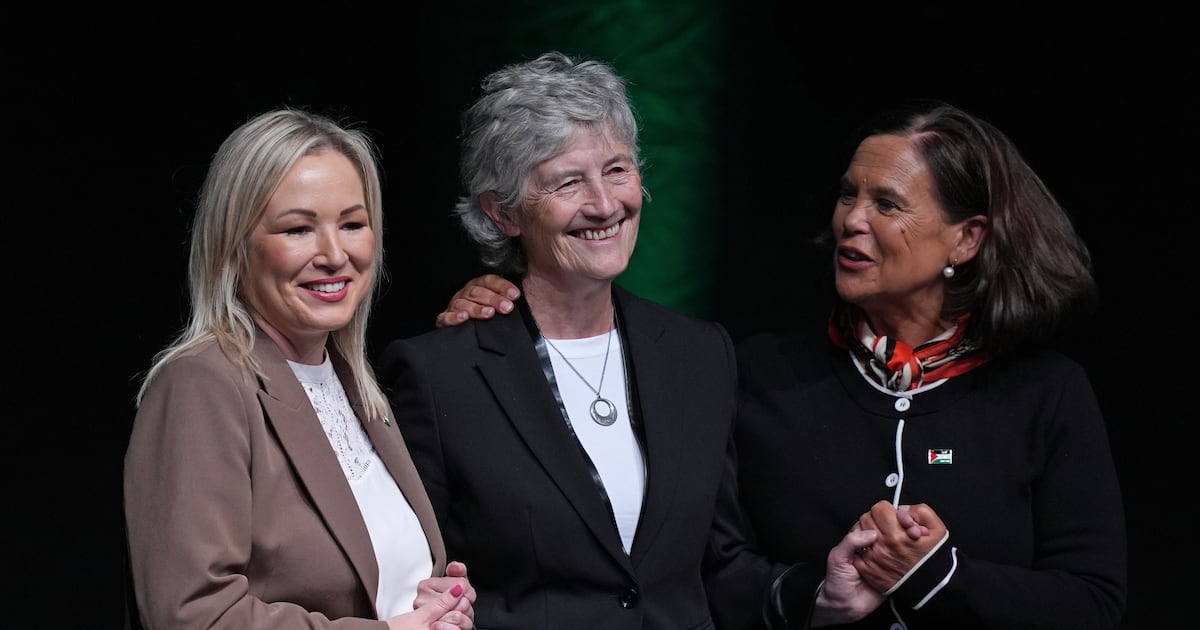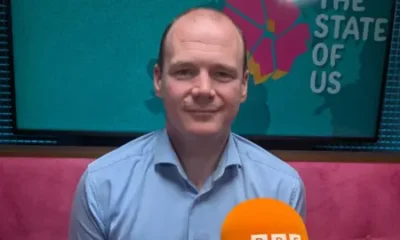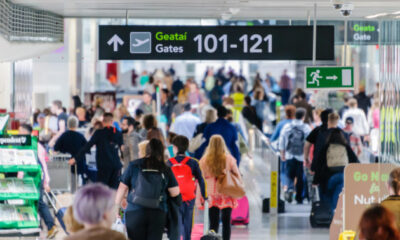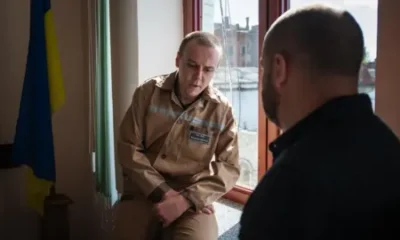Opinion
Fintan O’Toole: Catherine Connolly should keep her inner Basil Fawlty under wraps

Read more on post.
Before we talk about Catherine Connolly’s startling comparison of Germany’s current increases in military spending to its massive rearmament under the Nazis in the 1930s, let’s go back to much more recent history.
In 2018 and 2019, Ireland was facing a profound crisis. The Brexiteers were trying to reimpose a hard border between the two parts of the island. It was not alarmist to fear that this could set off a chain of events that would plunge us back into the violence we had so recently escaped.
Why did the Brexiteers think they could get away with this recklessness? In a word: Germany. They were convinced that, in the final throes of deal-making, the Germans would sacrifice Ireland’s national interests to those of their own car industry.
It was the realpolitik of power. The big countries would follow their own interests – little Ireland would not count. The Germans would pat us on the head and tell us that they had tried their best to protect us but, in the end, the BMW that really mattered was not the Border Midlands West region of this marginal island.
It was far from certain that the Brexiteers were wrong. For what, if it came to it, could we do? We could weep and wail and gnash our teeth and cry betrayal. We could ask Irish America to put pressure on the White House to put pressure on the Brits – but the White House was occupied by Donald Trump. His grasp on the situation is revealed (in his new memoir Speaking My Mind) by then-Taoiseach Leo Varadkar: “I think it will all work out very well, and also for you with your wall, your border … we have a border situation in the US and you have one over here, but I hear it’s going to work out very well …”
What happened instead is that Germany offered Ireland what then minister for foreign affairs Simon Coveney called “unambiguous solidarity”. There was never, to my knowledge, a single moment throughout this crisis when Germany didn’t have Ireland’s back. The Germans were consistent and unequivocal: there would not be a hard Border and Ireland would not be bullied or isolated.
I have vivid memories of turning up at Dublin Castle in January 2019 to say a few words at the big annual gathering of Irish ambassadors and diplomats. The first speaker was the then German foreign minister Heiko Maas. His speech was remarkable and, I have to admit, very moving. Maas said that “a hard Border dividing the Irish island is unacceptable and yes, some people called us stubborn.” But this was “a fundamental concern,” “a matter of principle” and “a question of identity” – not just for Ireland but for the European Union and indeed for Germany itself.
Why was this so emotionally potent? Because it meant that for the first time in the entire history of conflicts between Britain and Ireland, Ireland was on the stronger side. Ireland was not little – it was part of an alliance far bigger than a benighted and chaotic Britain. Unambiguous solidarity gave us power.
[ Presidential election: Jim Gavin presses the flesh and leverages GAA credentialsOpens in new window ]
This was about the Border but it was also about something even more fundamental: Irish independence. For any nation, but especially for a small one, being independent means being able to make international alliances that will not only advance your national interests, but protect you from being bullied by those who want to do you harm. In 2018 and 2019, the faction that had come to power in Britain wanted to do us serious harm – what the 1916 Proclamation called “our gallant allies in Europe” prevented it from doing so.
Which brings us to last week and the united left’s candidate for the presidency, Catherine Connolly, telling students in UCD that the plan by the current German government to more than double its defence spending is comparable to the actions of the Hitler regime: “Seems to me, there are some parallels with the ’30s.”
There are three big things wrong with this and the first is that it is historically illiterate. Germany is planning to take its defence spending up to 3.5 per cent of GDP. In 1938, Germany’s military expenditure was 17 per cent of GDP. In 1939, it was 40 per cent, and in 1943 60 per cent. A sense of proportion might come in handy here.
More importantly, the Nazi regime was a vile and vicious dictatorship that made no secret of its intent to use this military might to seize “lebensraum” from the territory of its neighbours. Germany now is a democracy embedded in the EU. Does anyone seriously believe that Germany is arming itself to invade Poland?
Second, European democracy faces threats from far-right forces on its eastern and western flanks. Vladimir Putin’s invasion of Ukraine is an expression of a fascistic imperialism explicitly aimed at re-establishing a Russian empire that incorporates or dominates several current EU states. Trump is equally explicit about his desire to destroy the EU, which he defines as the primary “foe” of the US.
Europe thus has no choice but to make itself strategically and militarily independent of the US. Otherwise it is impotent in the face of Russian aggression. Ukraine will fall and some of our EU allies (most obviously the Baltic States) will be next.
Third, it is a really bad idea for a would-be president of Ireland to tell a country that has so recently proved itself a vital ally that it is looking a bit Nazi. Germans are kind of sensitive to this stuff. If our president has an inner Basil Fawlty, it would be well to keep him very inner indeed.
If these facts are not sufficiently persuasive, the parties backing Catherine Connolly might remind her that accusing our EU allies of being proto-fascist warmongers is not a winning electoral strategy. Most voters know that the EU is the safest place we can be in a dangerous world.











